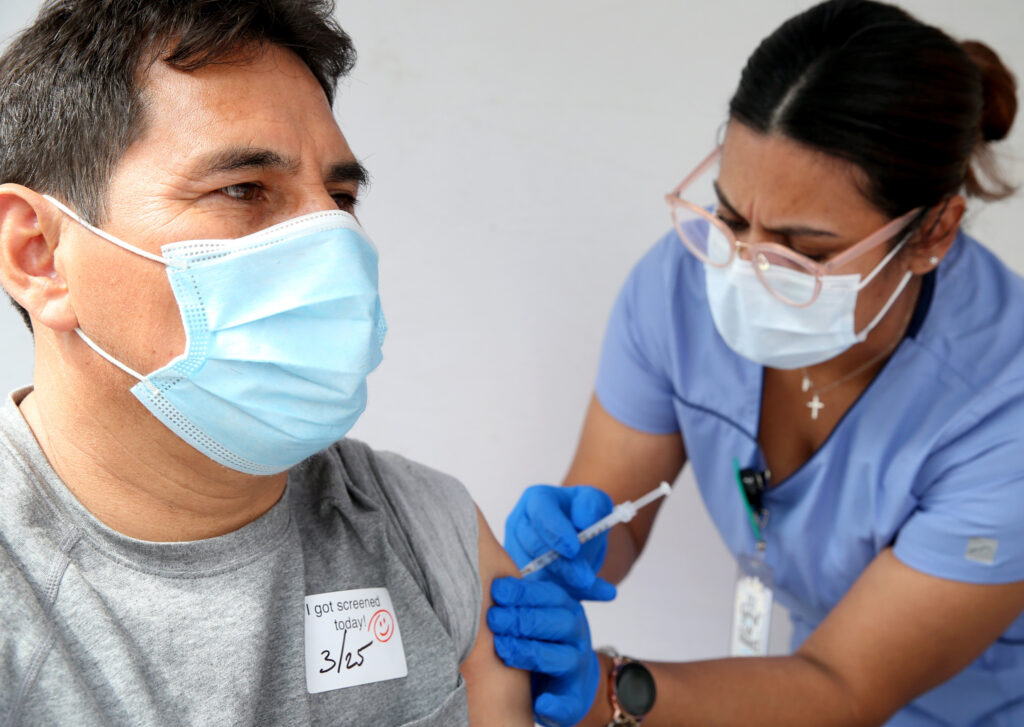Debate has raged in recent months over the access immigrants get to federal benefits and how they pay into the system, with the One Big Beautiful Bill Act making some major changes to that access for some in recent weeks.
With different immigrant types, from naturalized citizens to temporary visa holders, receiving different levels of access to health care, education, and financial aid, it has often been difficult to get a clear picture of the situation.
On Friday, USAFacts published a breakdown of a range of common benefits, from the Supplemental Nutrition Assistance Program (SNAP) to Section 8 housing, as well as the duties immigrants are expected to pay into, with the aim of making the topic clearer.
“When I first started this, I naively thought that this would be a little bit simpler, that there would be hard and fast rules that all government programs follow the same process of who is eligible and who is not,” Amber Thomas, a senior data visualization engineer at USAFacts, told Newsweek. “It turns out it’s really varied, sometimes between programs and sometimes based on immigration status.
“So I’ve included seven different immigration statuses here. These are not all of the immigration statuses that the government recognizes. There are many, many more. But these are the ones that we decided you’re most likely to hear about.”
What Benefits Do Immigrants Get?
Under President Donald Trump’s One Big Beautiful Bill Act (OBBBA) and other legislation introduced to Congress in recent months, some eligibility is being revoked from certain immigrant groups.
“The One Big Beautiful Bill obviously covers a lot of different legislation, and within it, there was a section that recategorized who is eligible based on immigrant status for a handful of programs, and that was specifically Medicare, Medicaid, CHIP (Children’s Health Insurance Program), SNAP, and marketplace subsidies,” Thomas said.
Some of the most notable changes are coming for DACA (Deferred Action for Childhood Arrivals) recipients, who had a few months of access to some Medicare programs before that was undone by recent bills. Similar changes have been made for refugees and asylees in the United States.
For those interested in participating in the Head Start school readiness program, eligibility is now limited to naturalized citizens, green card holders, refugees, and asylees. Applicants with pending asylum cases, DACA, or non-tourist visas are excluded.
Republicans have argued that these changes were necessary in order to prevent illegal immigrants from fraudulently using federal government benefits, but immigrant advocates have warned that thousands of people will be left without access to vital health care and other services.
“Republicans in Congress have succeeded in our mission to enact President Trump’s America First agenda,” House Republicans said in a joint statement on July 3. “And importantly, we did it in record time, so that the effects of this nation-shaping legislation can be felt by the American people as soon as possible.”
While the OBBBA did make some major changes to benefits eligibility for immigrants, other restrictions also remain in effect for new green card holders, with a five-year wait time for access to Social Security, Medicaid, CHIP, SNAP, and TANF (Temporary Assistance for Needy Families) benefits.
How Can Immigrants Participate in Society?
During the 2024 presidential election campaign, and in recent months during the passage of Trump’s budget bill, concerns were raised about the duties immigrants were able to participate in and the programs they were paying into.
USAFacts also unpacked some of these, clearly explaining that naturalized citizens take part in all five listed above. All immigrants pay taxes in some way, while no other category has the ability to vote in federal elections.
There are also varying levels of permissions to work legally and serve in the U.S. military.
One area of tension with the OBBBA has been around health care. With all immigrants paying taxes, but not all being able to access Medicare, advocates have repeatedly argued that this is unfair.
“We shouldn’t be kicking millions of people off Medicaid and denying lifesaving care to fund the Trump administration’s extreme deportation machine,” Deirdre Schifeling, chief political and advocacy officer with the ACLU, said in a press release in June.
“The American people did not vote for this. We will make sure that constituents remember the catastrophic harm this bill does and hold lawmakers accountable.”
Some of the policies are yet to take effect, with health access revoked in stages: in October 2026 and then in January 2027. Those using SNAP will likely see the changes take effect when they next try to verify their status.
Read the full article here
